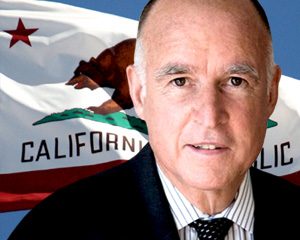Trailer Bill Seeks to Reconcile Medical and Adult Use Cannabis
In 2015, the California legislature passed the Medical Cannabis Regulation and Safety Act (MCRSA), which set up a regulatory structure for medical cannabis within the state. In 2016, California voters approved Proposition 64, also known as the Adult Use of Marijuana Act (AUMA), which quasi-legalized cannabis for adult use. AUMA and MCRSA are similar, but have some key differences, such as their definitions of “owner”; MCRSA’s requirement of mandatory independent distributors; MCRSA’s limitations on vertical integration; and AUMA’s residency requirement.
Last month, Governor Brown released his proposed trailer bill, which seeks to reconcile MCRSA and AUMA. The goal of his proposal is to unify California’s medical and adult use cannabis systems while still maintaining separate licenses for medical and adult use businesses. The trailer bill is essentially a rider on the state budget. Like other bills, it must be voted on by the legislature before it becomes law, and requires a 2/3 vote. However, given that the majority of the California legislators are Democrats who will likely want to pass their Democratic governor’s budget, it is likely that the trailer bill will pass in some form. [Are amendments allowed? Look into]
Where AUMA and MCRSA differ, the trailer bill typically chooses AUMA’s model. For instance, the trailer bill would allow other licensees to hold distributor licenses, eliminating the need for an independent distributor. The trailer bill would also allow for vertical integration of all license types except laboratories, as set out in AUMA. However, in certain areas, Governor Brown has proposed to follow MCRSA’s outline, for example by removing the 2-year residency requirement from AUMA. The trailer bill would also change the name of AUMA to the Medicinal and Adult-Use Cannabis Regulation and Safety Act (quite a mouthful!).
The trailer bill would require anyone applying for a cannabis license to indicate whether they are applying for an adult use license (“A-Licenses”) or a medical license (“M-Licenses”). A licensee can hold both types of licenses, but wouldn’t be able to operate a medical cannabis business and an adult use cannabis business on the same premises. The trailer bill would put the burden on the state licensing agency to make sure an applicant is in compliance with local laws, rather than putting the burden on the applicant to prove they are locally compliant.
Governor Brown is also proposing to eliminate the voluntary city/county medical marijuana ID card program, and making it such that a physician’s recommendation would be sufficient to get the sales and use tax break given to qualified medical cannabis patients. (This benefit is currently tied to the voluntary ID card under AUMA.)
If the trailer bill passes, the three agencies tasked with regulating cannabis within California (the Department of Consumer Affairs, Bureau of Marijuana Control; the Department of Food and Agriculture, CalCannabis Licensing; and the Department of Public Health, Office of Manufactured Cannabis Safety) will withdraw the proposed regulations they just released and issue new ones that comport with the trailer bill.
Stay tuned for more updates!
Trailer Bill Language – Cannabis Regulation

